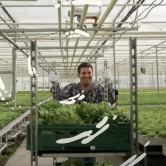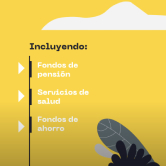The Seasonal Agricultural Worker Program
The Seasonal Agricultural Worker Program (SAWP) was established in 1974 by the governments of Mexico and Canada to respond to the growing need for labor in the Canadian agricultural sector. It allows Canadian employers to hire temporary foreign workers when Canadians and permanent residents are not available. These employers can hire workers from participating countries for a maximum period of 8 months, between January 1 and December 15, provided they are able to offer the workers a minimum of 240 hours of work within a period of 6 weeks or less.The program is invaluable for Canada’s food supply.
The SAWP offers Mexicans an alternative for orderly, legal, and safe labour mobility, fully respecting the rights of labourers and offering conditions equal to those of Canadian workers. Mexicans who work in Canada under the SAWP enjoy a stable job and earnings that allow them and their families, who often come from Mexico’s most vulnerable regions, to have a better quality of life. This is especially valuable in the current context of economic slowdown.
The SAWP has allowed thousands of Mexican labourers from rural regions to provide for their families, pay for their childrens’ education (including university), buy homes, pay their debts, start businesses, and purchase health insurance for themselves and their loved ones.
Oaxaca, Puebla and Chiapas, the three states with the largest number of marginalized rural zones in Mexico, are also those in which our efforts bear greatest fruit to combat poverty. Oaxaca, for example, sent over 400 workers from Priority Attention Zones to Canada in 2019.
The SAWP also supports Mexican families living in the states with the most urban areas in poverty: Veracruz, the State of Mexico and Oaxaca. In 2019, each of these states sent almost 2,000 workers from urban priority areas (ZAPs) to Canada through the SAWP.
In 2023, Canada received 26,000 Mexican agricultural workers under the SAWP. And in 2017, Mexicans who participated in the program sent USD $218 million in remittances to their families.
.

















